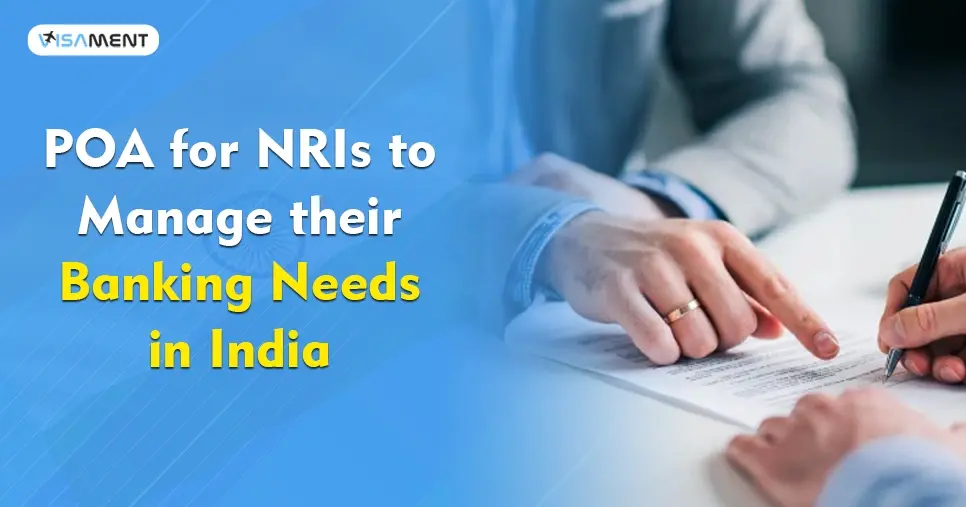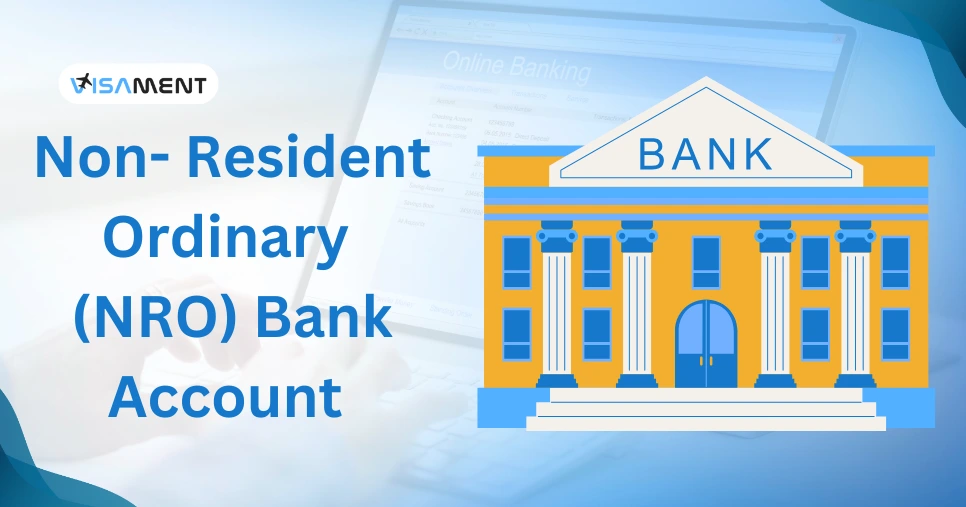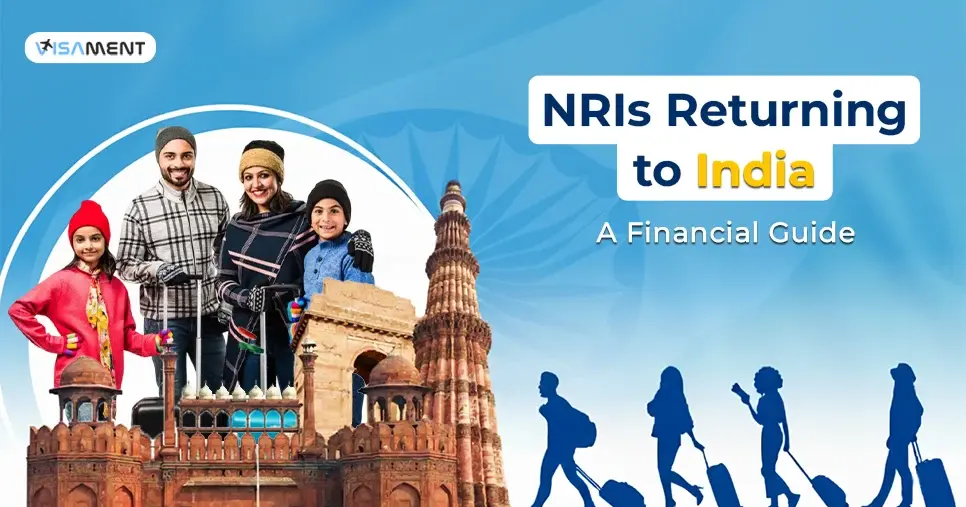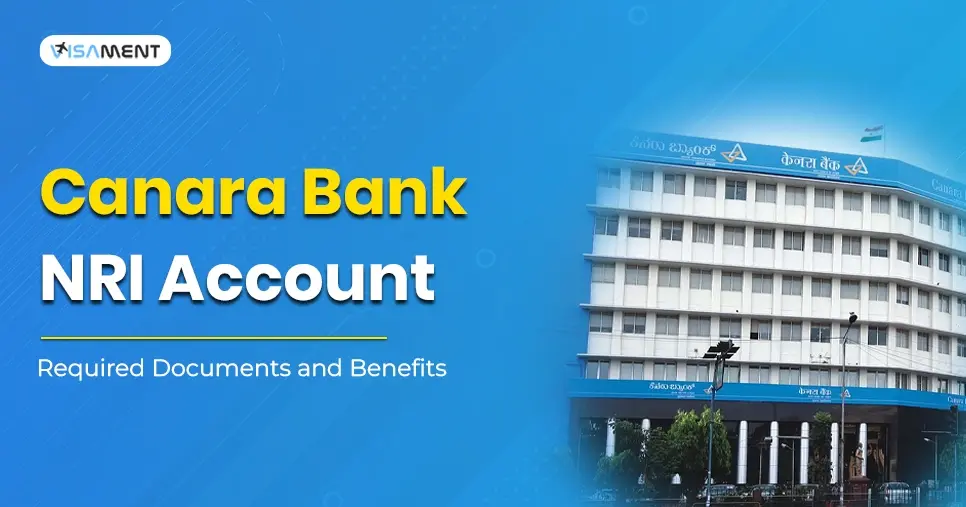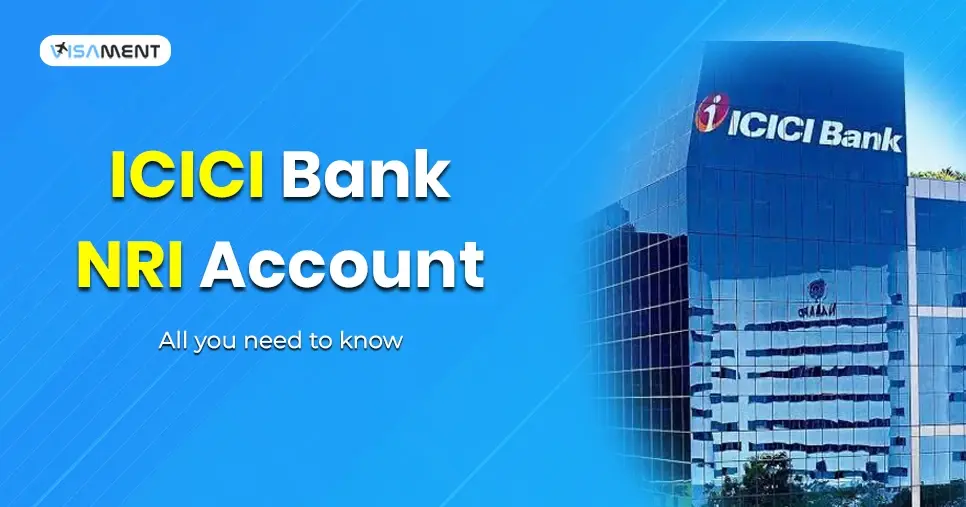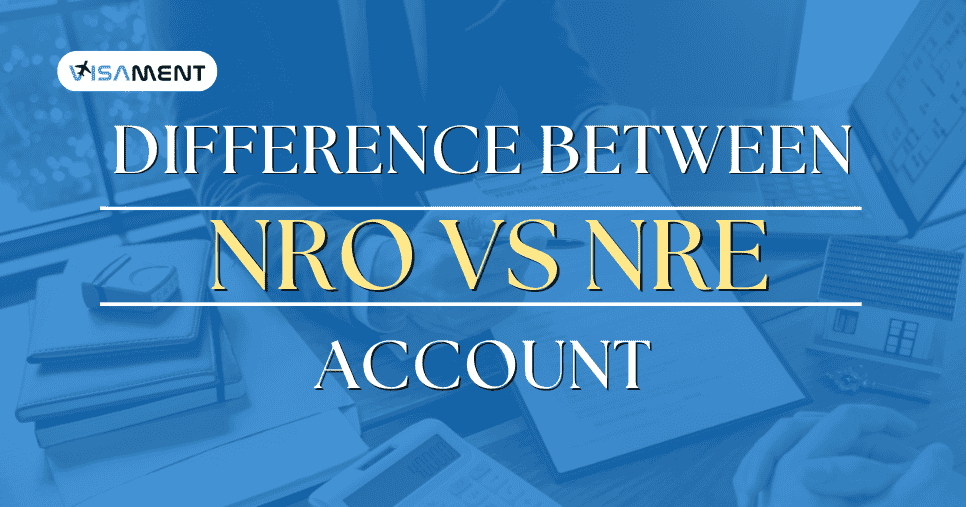- How Many Types of PoA?
- What is the Importance of NRI PoA banking in India?
- How is a PoA Different from a Mandate Holder?
- Operating NRO Account through PoA
- Operating NRE Account Through PoA
- Avoiding the Misuse of PoA
- Process of Creating a PoA for NRIs
- Indian Requirements of PoA: State-wise
- Choose Visament for Power of Attorney Services
If you are a Non-Resident Indian (NRI), then it will be difficult for you to be present physically every time you have to attend any financial and legal matters due to personal commitments, work, or some other purpose. To solve this problem, NRI grants the PoA to a trusted person who can act on their behalf as a representative in India.
It is the easiest way to handle tasks in India without being physically present. Two laws cater to the PoA broadly in India: the Indian Contract Act, 1872, and the Powers of Attorney Act, 1882. A PoA is a legal document that allows an appointed person to act on your behalf in some specific matters, such as real estate, banking, and others.
The person who grants the PoA is known as the Principal/Grantor, and the person who is granted the authority is known as the Constituted Attorney/Grantee/Agent. You can execute a PoA either from India or your country of current residence. In this blog, we will discuss the PoA as per the banking needs of NRIs in India.
How Many Types of PoA?
There are different types of PoAs depending on the purpose; they are as follows:
1. General Power of Attorney
- A General PoA provides a lot of powers to the agent to act on behalf of the principal. The agent appointed by a general PoA can participate in activities like business, banking, finance, or legal matters.
- For example, an NRI can appoint a grantee through a general POA for managing the property matters like selling, buying, leasing, and other various legal matters.
- You can also mention the matters or restrictions that are out of scope for the grantee. This will safeguard the interests of the principal.
2. Special Power of Attorney
- A Special PoA is used to give powers for a specific or special purpose, including the scale or purchase of a property, banking or finance needs, and any other legal matter in India.
- After the completion of the purpose, the special PoA will expire automatically.
- You should carefully mention the specific timeline and purpose of the task that needs to be done by the agent.
What is the Importance of NRI PoA banking in India?
You can appoint any trusted person or Indian resident Grantee who is above the age of 18 years to act on your behalf. Non-Resident Indians who cannot be physically present in India to sort their legal and financial matters, then they can appoint a Power of Attorney for NRI banking services.
Here are some of the benefits and the transactions that a PoA can execute:
1. Banking and Financial Operations
- In cases of disbursal of home loans, the agent can handle the formalities and documentation.
- You can make the local payments, including investments in Indian Rupee.
- Only your current income can be a part of remittance outside of India.
- You can claim settlements, manage premiums, and other investments.
2. Managing Real Estate
- Renting out the property
- Paying the taxes and insuring the property
- Selling and buying commercial and residential property
- Managing Mortgage
- Other charges over the property as security for loans
3. Commercial and other matters
- Management of Investments
- Executing legal documents
- Presenting in front of the authorities on the principal's behalf
- Managing the administration of the Factory and Office
How is a PoA Different from a Mandate Holder?
There is a difference between the mandate holder and a power of attorney. However, they are both used in managing your banking needs for NRO/NRE accounts.
- To appoint a mandate holder to manage your banking needs as an NRI, you have to submit a mandate form along with all the necessary documents to the bank. Also, when you appoint a mandate holder, you have to submit different types of KYC documents to the bank.
- For appointing a grantee through a power of attorney, all the documents and forms should be signed in front of a public notarFy, and they all should be stamped with the appropriate stamp duty. In the case of POA, there is no need to submit the KYC documents to the vbank.
Operating NRO Account through PoA
According to the rules and regulations prevailing under the Foreign Exchange Management Act (FEMA) and the rules of Indian banks, the Indian resident grantee is required to perform the following activities:
- For operations related to the bank accounts, the grantee is restricted from withdrawing any amount from the account while making permissible local payments.
- If they are making any type of remittance, then the limits and conditions of repatriability must apply.
- They must remit the current income in the NRO account to the account owner outside India, or the account holder can send money directly to the account owner by using normal banking channels.
Operating NRE Account Through PoA
According to the rules of FEMA, Indian banks, compliance with the applicable laws is compulsory, and it allows the grantee to perform the following activities through POA in banking:
- They are permitted to make investments in India.
- They can withdraw the funds to make local payments.
- They are permitted to do the remittance of funds available in the NRE account to the account holder by using the various banking channels.
The following conditions are those that are not permitted to the Indian Resident Grantee:
- They cannot open an NRE account on the principal's behalf.
- They cannot transfer the funds from your NRE account to another NRE account.
- They are not permitted to make payments as a gift to an Indian Resident on your behalf.
- They cannot repatriate the funds outside India.
- They cannot transfer funds from NRE accounts to a bank account held by another person.
Avoiding the Misuse of PoA
As you already know, PoA can be very helpful for the NRIs, but sometimes they put you at risk of being misused. The grantor can cancel the POA anytime they feel it is being misused, regardless of whether the POA is complete or not. To avoid the misuse of the powers, you can include these conditions in the PoA to protect your interests:
1. Details of Principal and Agent: You have to clearly mention the personal details of both the principal and the agent, including:
- Their full names
- Occupation
- Their detailed address
2. Reasons of PoA
- The POA should be legally valid
- Mention the limits of fund transfer for the POA holder in banking, if you have any.
- Mention the intended act clearly.
- Write all the restrictions if you have any.
- You can also include a requirement for the grantee to give you regular updates.
3. Others
- Mention the start and end date of the POA apply
- Mention the place of the POA executed
- Insert the details of the bank account that is given to the agent to operate.
Process of Creating a PoA for NRIs
In the process of appointing a grantee, you can either choose from within India or outside India, but he/she should follow certain requirements:
- They should be at least 18 years old.
- They should be mentally sound and have a good character.
- They should be trustworthy to you.
1. Procedure to execute in India
For a valid Power of Attorney, it should be executed in front of a public notary. In some states of India, you even have to register it depending on the purpose of a PoA and its nature.
2. Procedure to execute outside India
In the cases of POA outside India, the laws of that country would apply. But, if the POA is related to the matters or assets of India, then some conditions will apply:
- You must notarize the POA from an official officer at the Indian Embassy.
- You can also have the PoA notarised by the authorized officer of the relevant country.
- You should have the POA stamped in India according to the rules of the Stamp Act of the applicable state, and if the laws say so, then you might as well get it registered.
Indian Requirements of PoA: State-wise
The registration requirements for a POA and its notarisation are different for the states and can vary from one another. The requirements for the registration of PoA depend on its purpose. Understand this by an example, a PoA for the sale of immovable property requires it to be registered in most of the states in India, like Maharashtra, Kerala, Rajasthan, etc.
One more important thing is that you should keep in mind that the amount of stamp duty payable on the PoA can also differ for the different states. You should consult a lawyer before engaging legally in these matters. Each state has its own rules and regulations for appointing a power of attorney.
Stop worrying about delays. Apply now and get Indian Counsellor Services.
Chat NowChoose Visament for Power of Attorney Services
You can make all the decisions by yourself and execute a POA if you have the information about the financial and legal matters. As an NRI, if you are planning to appoint a Power of Attorney for your financial and legal matters related to banking or other matters, then you should choose a trusted platform for that. Visament has a team of experts, and it is India's trusted platform to handle matters related to power of attorney.
We will help you with the documentation process, which also includes the notarization and registration (if necessary). You can always get the updates regarding this process from our website. It's better to seek guidance from the experts in matters of finance or banking because you never want the PoA to be misused. Select Visament and secure your PoA in India.
Frequently Asked Questions
Yes, a Power of Attorney can be used for Indian bank accounts, but you will need a specific authorization from the principal and fulfill the bank's requirements.
You can write a Power of Attorney letter for an Indian Bank by mentioning all the personal details at the start. The main line will be like this: " I [Your full name], residing at [ your address], hereby appoint [Authorized person's full name], residing at [authorised person's address], as my true and lawful attorney-in-fact to act on my behalf in matters described in this document." Then you can mention the purpose of PoA carefully. This is the general statement that can be used.
Yes, an Indian POA can withdraw money from the joint account, but it can only be done if the account holder (s) or principal has mentioned it properly in the POA with the bank's permission and authorized them. If the agent is allowed to make transactions, it also means they can withdraw money.
Yes, NRIs can appoint different agents to do the same task, hence they can execute multiple PoAs for the same purpose.
